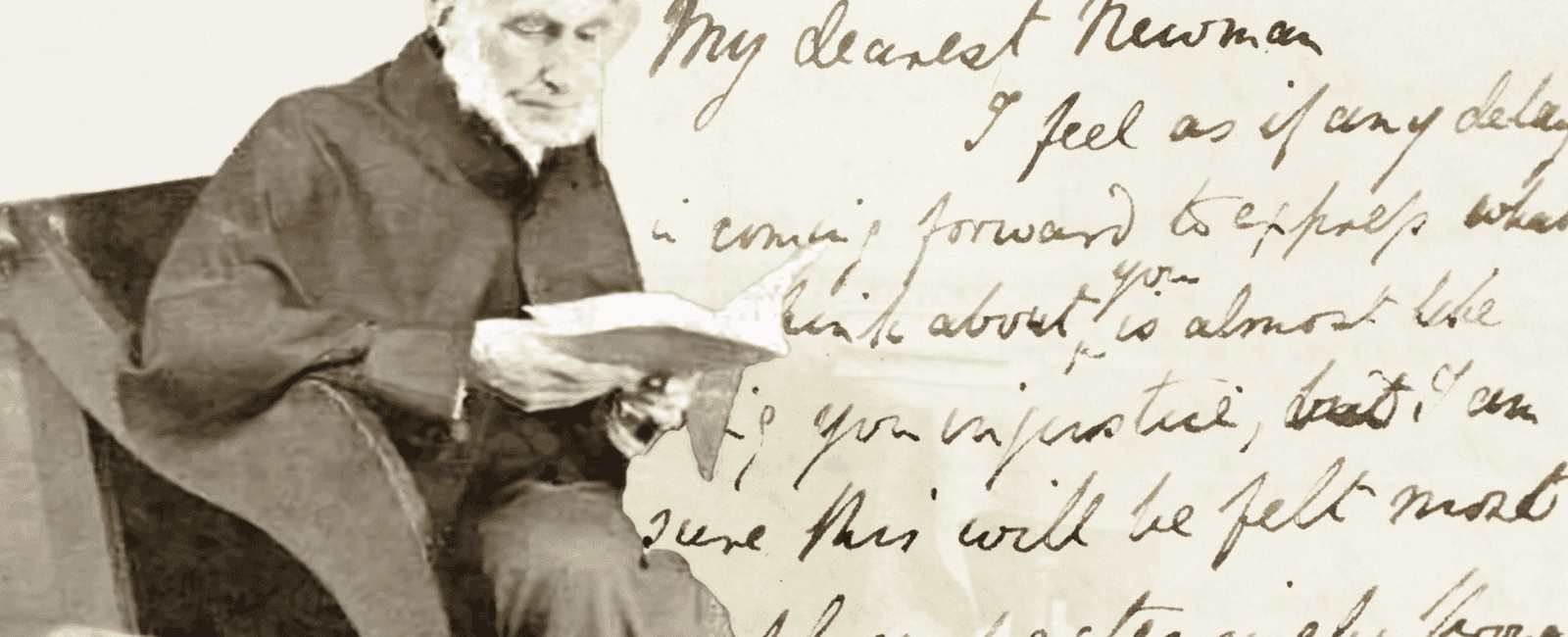The Letters of the Rev. Isaac Williams to Newman

The Rev. Isaac Williams (1802–1865) was a contemporary of John Henry Newman (1801–1890) at Trinity College, Oxford. The son of a Welsh lawyer, he was ordained a priest in Anglican Orders in 1829, serving first as curate at Windrush, Gloucestershire. Williams returned to Oxford in 1831 after being elected a Fellow and Tutor at Trinity and became the Dean of his College in 1833 and vice-president in 1841. From 1836 he also served as assistant curate to Newman at Littlemore.

He collaborated on the Lyra Apostolica and as a Tractarian and contributed Tract 80, “On Reserve in Communicating Religious Knowledge,” which he concluded with Tract 87. Williams also wrote Tract 86 “Indications of a superintending Providence in the preservation of the Prayer-book and in the changes which it has undergone.”
The controversy surrounding Tract 90 in 1841 led to Williams being forced out of the running to replace John Keble as Professor of Religious Knowledge, and in 1842 he married Caroline Champernowne and left Oxford to become curate to Thomas Keble at Bisley, Gloucestershire. In 1846, following a serious breakdown in health, he retired to Stinchcombe where the living was held by his brother-in-law and fellow Tractarian, Sir George Prévost, 2nd baronet, who had married Williams’s sister Jane (d. 1853). With Thomas Keble, Prévost contributed to Tract 84, “Whether a Clergyman of the Church of England be now bound to have Morning and Evening Prayers daily in his Parish Church.”

Prévost was also the son of Sir George Prévost, 1st baronet, Governor in Chief of British North America from 1811 to 1815, commanding British forces during the War of 1812 against the USA. It was Prévost who ordered Rear Admiral Cockburn to undertake the 1815 invasion of Washington, DC, which led to the burning of the White House and the Capitol, in retaliation for the United States’ attack on the north shores of Lake Erie.
Isaac Williams died in 1865 at the age of 63, in the same year that Sir George became Archdeacon of Gloucester, who survived until 1893.
The NINS Digital Collections contain 26 letters by Williams. Three are from the papers of Hurrell Froude, and 23 make up his surviving correspondence with Newman. The Newman letters begin in March 1841 at the time of the Tract 90 controversy and continue until May 1864, a few months before Williams’s death. Those from the 1840s cover discussions about the growing schism at Oxford, while those from the 1850s and 60s are of a more personal nature as their friendship continued despite Newman’s conversion to Catholicism.
In total Williams published 37 works, including:
Thoughts in Past Years (1838)
Hymns Translated from the Parisian Breviary (1839)
A Sermon Preached at the Consecration of the Church of Llangorwen (1841)
The Gospel Narrative of Our Lord’s Ministry (1848, 1849)
A Harmony of the Four Evangelists (1850)
Plain Sermons on the Latter part of the Catechism (1851)
The Apocalypse, with Notes (1852)
Sermons on the Epistles and Gospels for the Sundays and Holy Days (1853)
Female Characters of Holy Scripture (1859)
The Beginning of the Book of Genesis, with Notes (1861)
The Characters of the Old Testament (1869)
Devotional Commentary on the Gospel Narrative (1870)
Additionally, there is a small handful of letters from Sir George Prévost to Newman and others dating from 1838, and then a sole letter from 1865 advising Newman of Williams’ death. Their friendship clearly did not survive Newman’s conversion.
Lawrence Gregory
Lawrence Gregory is the NINS senior archivist and UK agent, and a historian of nineteenth-century English Catholicism, who also enjoys cats and steam trains.
QUICK LINKS

